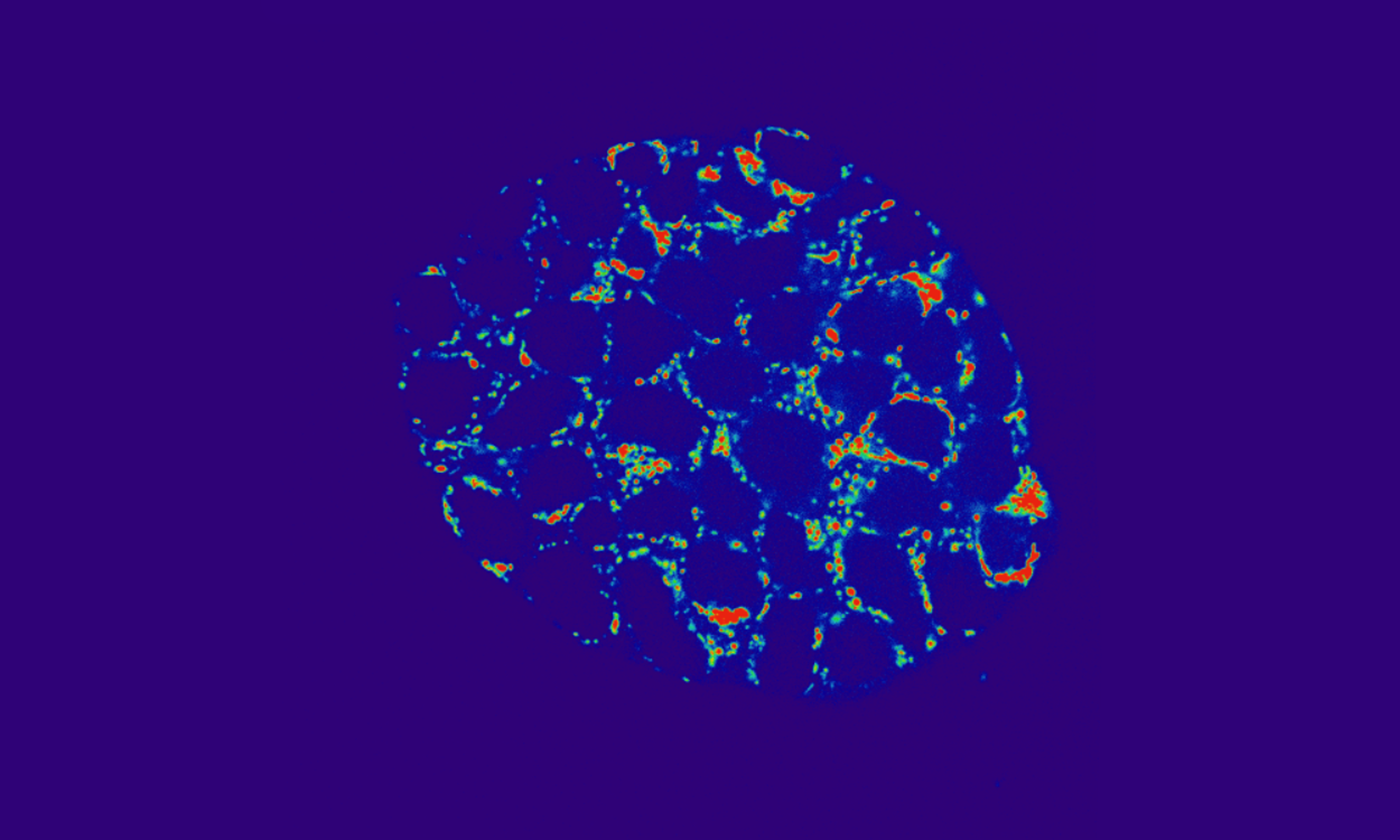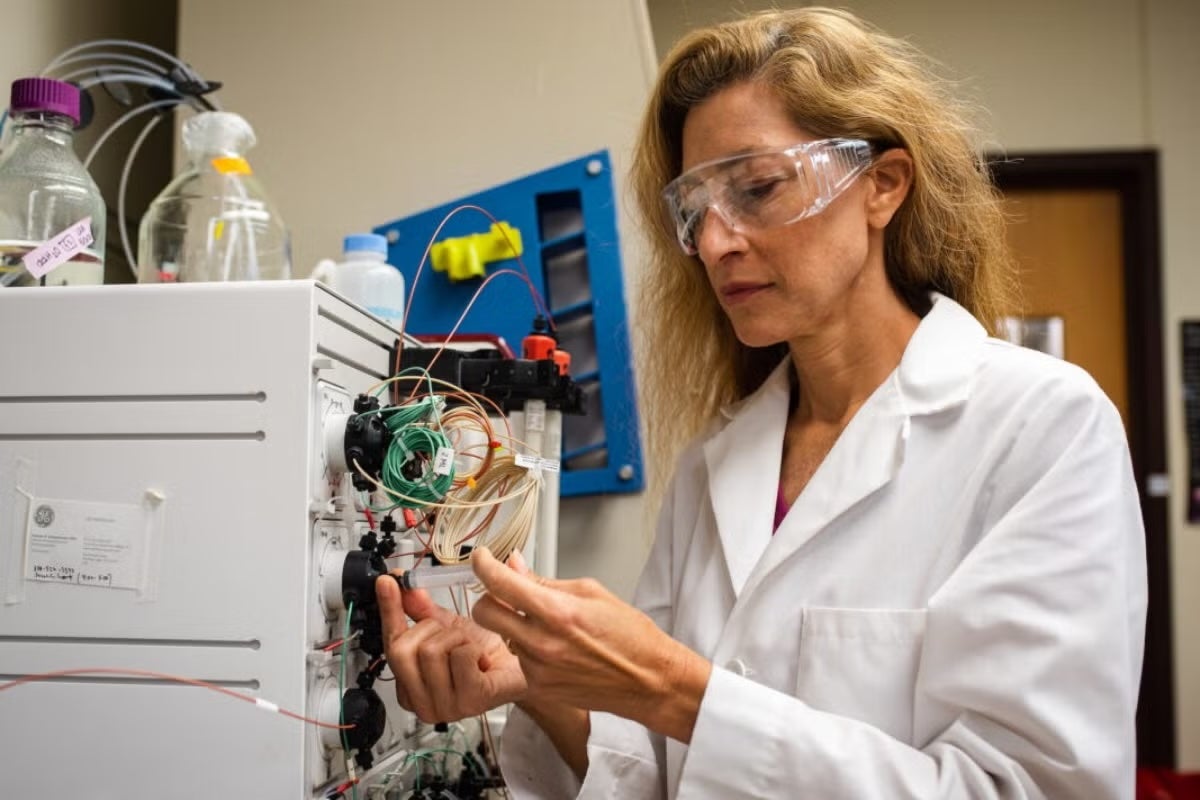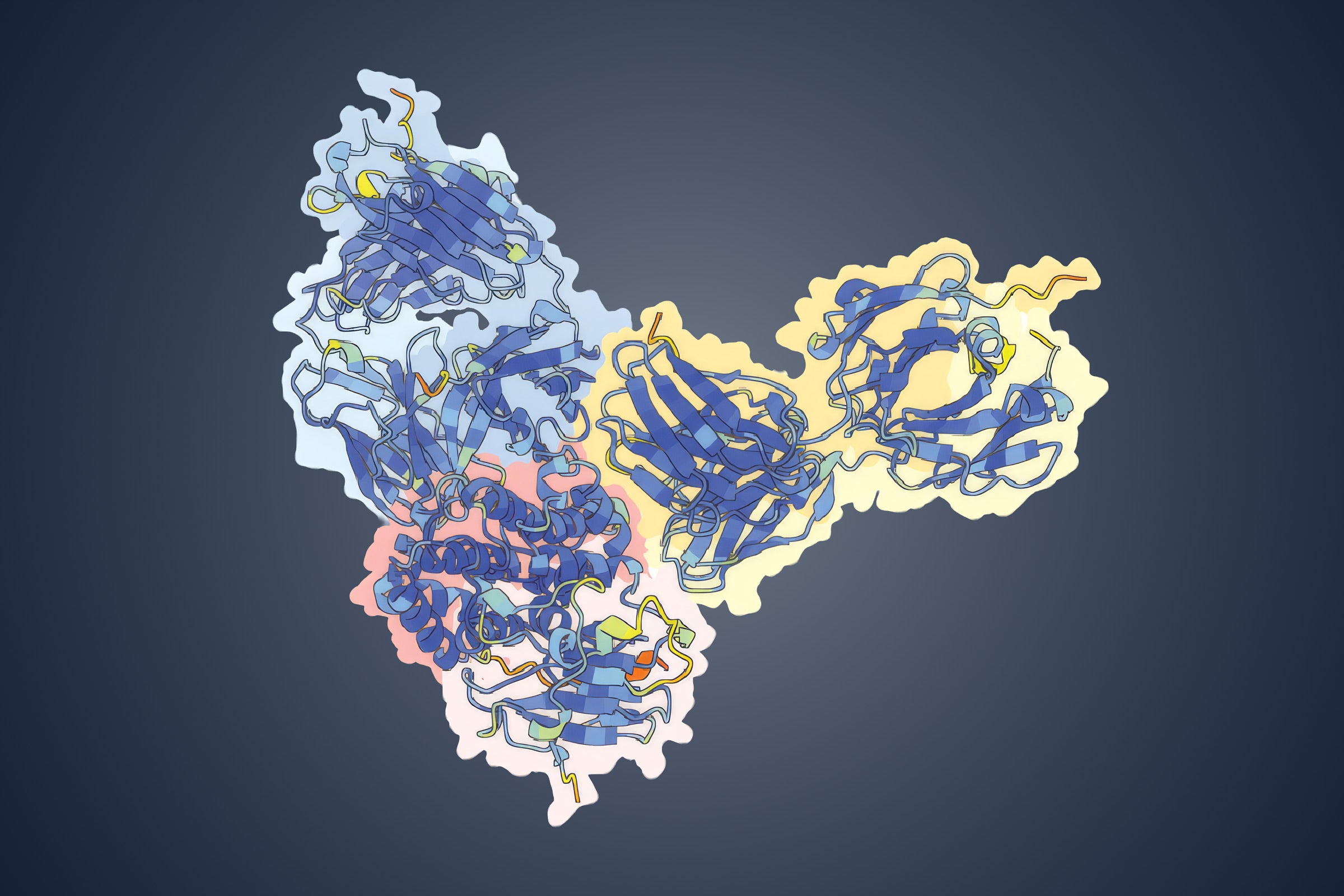Innovative Cancer Research Bolstered by Grants from CPRIT

A slice through a cluster of about 20 human cells with mitochondria highlighted as green and red dots. Image courtesy of Lulu Cambronne/University of Texas at Austin.
The Cancer Prevention and Research Institute of Texas (CPRIT) recently awarded grants to six faculty members at The University of Texas at Austin, including Xioalu "Lulu" Cambronne in the Department of Molecular Biosciences. The funding will support ongoing, innovative cancer research at UT Austin and enable advances in immunotherapy, drug development and cancer prevention efforts.
The grants are among 73 new statewide awards totaling more than $142 million that CPRIT recently announced. The UT recipients are faculty members from the College of Natural Sciences, Cockrell School of Engineering, College of Pharmacy and Dell Medical School:
College of Natural Sciences
Xiaolu "Lulu" Cambronne, assistant professor of molecular biosciences, is the principal investigator for a CPRIT grant exploring whether an especially difficult-to-treat form of cancer called acute myeloid leukemia depends on a recently discovered protein for survival. She and her team recently discovered the identity of a mitochondrial NAD+ transporter protein that controls the levels of a key nutrient used by the power plants of human cells, the mitochondria. Because they grow and divide rapidly, cancer cells are especially power hungry. The hope is that by disrupting the ability of mitochondria to harness energy, they can effectively turn the lights off on cancer cells.
Cockrell School of Engineering
Hyun Jung Kim, a professor in the Cockrell School of Engineering, received a CPRIT award in support of his use of cancer-on-a-chip technology to study colorectal cancer, the second leading cause of cancer death globally. Types of bacteria present in the human body are linked to how patients respond to forms of immunotherapy. The cancer-on-a-chip technology is a small microchip that can mimic the physiological functions of the human gut. Using the chip, Kim and his team can study all the cells involved in the gut environment, introduce new cells and bacteria, and then monitor how they affect the immune system's ability to recognize and kill tumor cells.
Chemical engineering professor Jennifer Maynard is leading efforts to engineer antibody-based cancer therapies that cause less damage to healthy cells. A widely prescribed breast cancer antibody treatment, trastuzumab, has significant and well-documented side effects in many patients because of its negative effect on heart cells. This can cause delays in treatment and is especially problematic for patients who are elderly, diabetic or have high blood pressure or coronary artery disease. By leveraging the unique pH environment near tumor cells, Maynard and her team will engineer trastuzumab to selectively interact with cancer-killing immune cells, increasing the specificity of an already effective breast cancer therapeutic. The methods developed for trastuzumab will be transferable to other tumor-targeting antibodies.
College of Pharmacy
College of Pharmacy professor Kevin Dalby is the principal investigator for a CPRIT award that funds the Targeted Therapeutic Drug Discovery and Development Program. The goal of the program is to use an integrated approach to targeted molecular drug discovery to increase the number of new compounds in Texas that reach preclinical testing and possess the qualities needed to inhibit growth targets in tumors. Although cancer researchers have identified many clinically important cancer-related targets, the critical challenge in advancing new molecules from "discovery" to preclinical testing is lack of access to the specialized resources and multidisciplinary experiences needed in the early phase of the drug development effort.
Dell Medical School
The newest grants made to Dell Med researchers are part of the medical school's expanding cancer prevention and control program.
Gastrointestinal cancer specialist Dr. Kyaw Lwin Aung, a Dell Med assistant professor of oncology and physician scientist at UT Health Austin, is spearheading research focused on pancreatic cancer — the third leading cause of cancer-related deaths in the U.S. with a five-year survival rate of only about 11%. Aung received a CPRIT grant to develop novel strategies to overcome resistance to immunotherapy in pancreatic ductal adenocarcinoma, which is the most common and most aggressive and deadly form of pancreatic cancer.
CPRIT funding also continues to fuel collaborative cancer prevention efforts led by Dr. Michael Pignone focused on innovative strategies to increase colorectal cancer screening among underserved individuals. As director of the Program on Cancer Prevention and Control at Dell Med's Livestrong Cancer Institutes and chair of the school's Department of Internal Medicine, Pignone leads an ongoing collaboration begun in 2017 with the clinical team at CommUnityCare Health Centers, Central Texas' largest federally qualified health center. As part of the screening initiative, the partners have mailed fecal immunochemical colorectal cancer tests to more than 33,000 patients with low income and successfully screened more than 6,900 people, doubling the colorectal cancer screening rate.
Adapted with permission from UT News.



